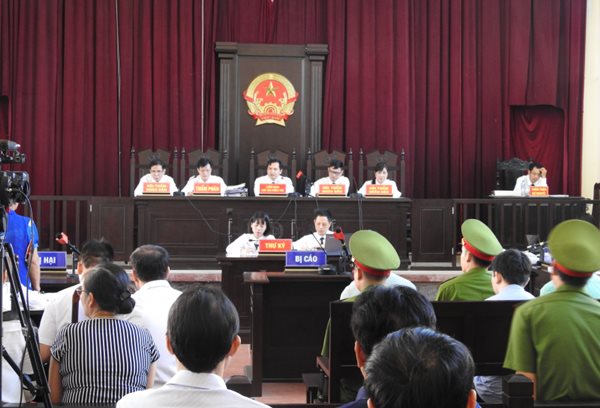This is the prominent content mentioned in Resolution 27/NQ-TW on the reform of salary policy for officials and public employees, armed forces, and workers in enterprises.
 SALARY TABLE FOR JUDGES – PROSECUTORS FROM July 1, 2020
SALARY TABLE FOR JUDGES – PROSECUTORS FROM July 1, 2020
Illustrative photo
** Section 3.1.c Part II of Resolution 27-NQ/TW stipulates that one of the contents of salary reform for officials and public employees is to abolish the statutory pay rate and establish a new salary level based on job positions.
Additionally, Resolution 27-NQ/TW also outlines the salary increment roadmap for officials and public employees from 2021 to 2030 as follows:
- In 2021, the lowest salary of officials and public employees will equal the average minimum salary of various regions in the corporate sector. Periodic salary increments will be implemented in line with the consumer price index, economic growth, and the state budget's capacity.
- By 2025, the lowest salary of officials and public employees will be higher than the average minimum salary of various regions in the corporate sector.
- By 2030, the lowest salary of officials and public employees will be equal to or higher than the highest regional minimum salary in the corporate sector.
Furthermore, Articles 7 and 8 of Decree 06/2010/ND-CP stipulate that positions within the People's Courts and People's Procuracies systems are all official positions (except for the Chief Justice of the Supreme People's Court and the Chief Procurator of the Supreme People's Procuracy who are considered officials). Therefore, Judges, Prosecutors, and Court Clerks will also follow the above salary increment roadmap.
Based on the above regulations, in 2021, the salary for Judges, Prosecutors, and Court Clerks will no longer be based on the statutory pay rate but will be calculated based on the average minimum salary of various regions in the corporate sector and according to specific job positions. This will help Judges, Prosecutors, and Court Clerks improve their salaries and income compared to the current levels.
Thanh Lam
 Article table of contents
Article table of contents

![[InfoGraphic] 6 forms of discipline for officials and public employees under Decree 71/2016/ND-CP](https://cdn.lawnet.vn//uploads/NewsThumbnail/2016/07/12/1319291-01.png)




.Medium.png)
.Medium.png)
.Medium.png)
.Medium.png)
